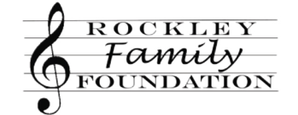The investment in a beautiful instrument can be protected and its life extended when you understand how to clean your piano after daily use.
Disinfect your piano keys
Steinway & Sons recommends that you clean your piano keys with over-the-counter hydrogen peroxide by doing the following:
- Dampen a cotton pad or cotton rage with peroxide and wipe down the piano keytops from back to front.
- Use diluted alcohol-based disinfectants only because bleach-based disinfectants and products containing citrus can damage the finish of your instrument.
- Always put the disinfectant on the towel and not the piano.
- Immediately after disinfecting, dry all the surfaces with a dry towel and never let liquids linger on the piano or the keys.
With the prevalence of COVID-19, it’s important to remember to disinfect the piano keys in between players and always wash your hands before and after playing in a shared instrument. Even though COVID-19 does not transmit persistently through surfaces, the closeness of the piano surfaces to a player’s face does mean there is potential for aerosol particles to go from face to keys fairly easily.
Cleaning the Cabinet
The physical body of the piano can be cleaned with a soft dry cloth to pick up dirt and dust. If your piano has a high-polish finish, you can wipe it lightly with a microfiber polishing cloth to eliminate fingerprints and other marks.
There are a great range of cleaning products available, that are specially formulated for musical instruments. We suggest you always test a new product on a hidden surface to make sure it won’t stain, scratch or cause other damage when you clean your piano cabinet.
Waxing and polishing might be tempting to get that perfect sheen. However, waxes and polishes have a tendency to cause buildup over time and can only be safely applied by professionals.
Keeping your Piano Clean
The biggest enemy of your piano is dampness. Make sure you keep all surfaces clean and dry and particularly take care to avoid dampness in between the keys. Avoid placing pots, vases, drinks or other objects on top of the piano.
When you protect your piano from sun, humidity and extreme temperature swings, you will extend its life and its finish. When possible, place your piano away from drafts and vents and for the most part keep the lid closed when the instrument is not in use.
